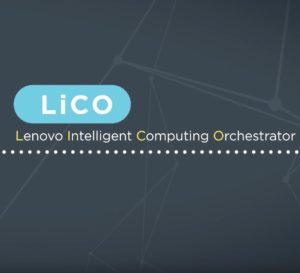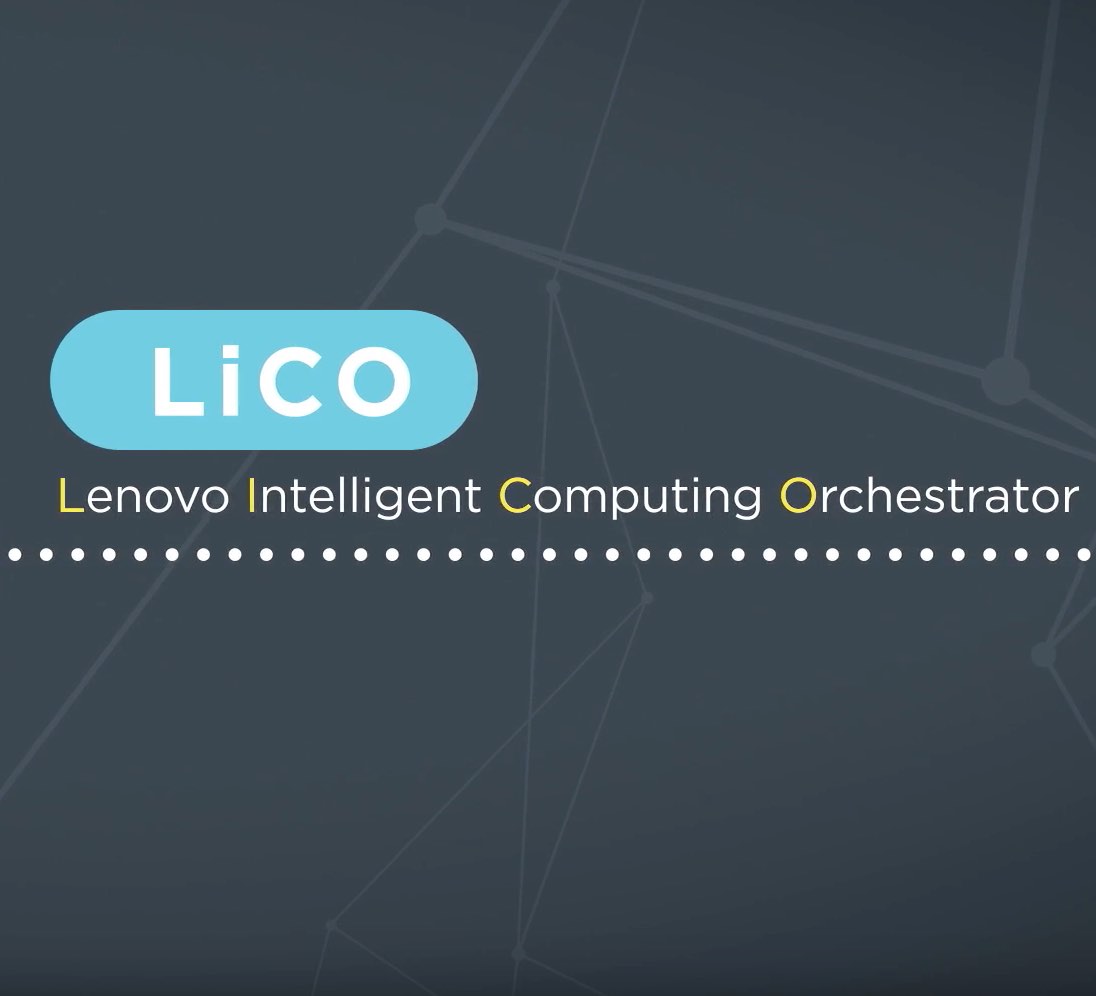Over at the Lenovo Blog, Dr. Bhushan Desam writes that the company just updated its LiCO tools to accelerate AI deployment and development for Enterprise and HPC implementations.
 The newly updated Lenovo Intelligent Computing Orchestration (LiCO) tools are designed to overcome recurring pain points for enterprise customers and others implementing multi-user environments using clusters for both HPC workflows and AI development.
The newly updated Lenovo Intelligent Computing Orchestration (LiCO) tools are designed to overcome recurring pain points for enterprise customers and others implementing multi-user environments using clusters for both HPC workflows and AI development.
LiCO simplifies resource management and makes launching AI training jobs in clusters easy. LiCO currently supports multiple AI frameworks, including TensorFlow, Caffe, Intel Caffe, and MXNet. Additionally, multiple versions of those AI frameworks can easily be maintained and managed using Singularity containers. This consequently provides agility for IT managers to support development efforts for multiple users and applications simultaneously.
As AI activity ramps up and comes under IT management, many organizations are considering scale-out deployments that offer flexibility and best total cost of ownership (TCO). To accomplish this, organizations need complementing tools to manage AI development in scale- out environments. This is where LiCO shines, giving the flexibility to run either on Intel’s Xeon scalable processors or NVIDIA GPUs – including the latest Tesla V100 – based on the customer’s hardware platform of choice and workloads with a potential for reducing TCO up to 35% compared to purpose-built scale-up systems.
Through distributed training management capabilities, it is easier to launch a parallelized training task in LiCO on multiple servers. This advantage reduces time-to-train requirements, and allows for faster experimentation, by efficiently scaling computing resources in clusters.
LiCO features transfer learning using pretrained models, which reduces computing demands as compared to model training from scratch.
Enabling AI Development
Data scientists and AI engineers require tools to simplify their workflows in repetitive tasks, such as hyperparameter tuning or model set up based on well-known network topologies. Additionally, command-line monitoring of training jobs can be both time-consuming and error-prone. LiCO addresses some of these critical needs by incorporating intuitive GUI driven workflows and monitoring tools that can reduce time for setting up models by up to 25-50%.
Researchers at North Carolina State University (NCSU) are using LiCO to develop AI models for analyzing large amounts of geospatial image data to map various features. The principal investigator of this effort, Dr. Raju Vatsavai, explains how LiCO solves deep learning challenges:
When it comes to using advanced AI solutions such as deep learning, application scientists are bogged down by two challenges: (i) which framework to use, and (ii) how to setup the training (parameter tuning and computing infrastructure) environment. These two impediments to wider adaptability are effectively reduced by Lenovo through their LiCO framework. As a result, scientists from diverse application domains can now focus on extracting valuable insights in a timely manner from their big data and not waste time on putting together mired open source solutions to solve their problems – or worse yet, not using the best solution at all.”
Lenovo is also working with a number of partners on AI initiatives that will provide real world solutions for customers. By combining a diverse set of data science expertise with deep industry knowledge of industry segments including healthcare, life science, energy and manufacturing, we’re able to provide solutions that meet customers where they are. Our collaboration with partners such as Intel, NVIDIA, Mark III systems, and byteLAKE greatly expands the resources and expertise we’re able to provide.
By relying on vast resource and expertise from our partners and Lenovo’s Research & Technology teams, Lenovo has built AI proof-of-concepts that detect tumors in human livers to aid healthcare providers and improve quality control for manufacturers using image recognition models.
Intel strongly believes that the potential of AI across industries will be realized by democratizing the technology and easing its implementation. We are proud to be collaborating with Lenovo s LiCO comes to market, offering a holistic approach to solutions with both hardware and software. The combination of expertise from Intel and Lenovo provides an easy path for customers to get started, resulting in a greater time-to-value and ROI as AI projects come to fruition.” – Carlos Morales, Head of Deep Learning Systems, AI Products at Intel.




